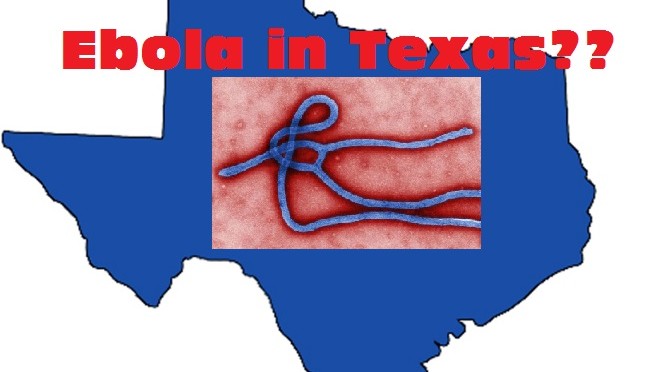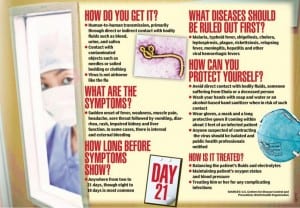After news broke that the first official case of Ebola was diagnosed in Dallas, it’s understandable that many in Texas and across the country are concerned that the virus could spread rapidly like what is happening in Africa. The patient is from Liberia, came in contact with the virus there and traveled to Texas before showing any signs of infection. But as Susannah Locke with Vox shares, that worst-case scenario is extremely unlikely in the United States…
The current Ebola outbreak has already infected thousands of people in West Africa — including several Americans who were diagnosed there and then brought back to the United States for treatment. But this is the first time a person has been diagnosed with the disease inside US borders.
According to the CDC, the patient had recently been in Liberia and flew to the US before he was symptomatic or contagious. He later fell ill and was admitted to a hospital in Texas, where he was placed in isolation.
It’s not surprising that an Ebola case has finally popped up in the United States — especially with air travel as common as it is. But it’s also not a disaster. Experts say that public-health officials would likely be able to contain any Ebola outbreak in the United States pretty quickly.
Why is that? One big reason is that Ebola is not especially contagious, as diseases go. You can only get Ebola by coming in direct contact with the bodily fluids of someone who is already showing symptoms. That makes it relatively slow to spread (unlike, say, the measles).
More importantly, the United States has ample health resources and infection-control measures to contain outbreaks. This is in stark contrast to West Africa, where poverty and weak health care systems have allowed Ebola to spread and claim the lives of more than 3,000 people.
“Ample health resources” is something of an understatement. As a health official from Doctors Without Borders shared in a recent PBS News Hour interview, there stark differences among the healthcare infrastructure here and in West Africa. “Some of these countries, entire countries, have less doctors than, say, a single hospital in a major Western city.”
Beyond sheer numbers of doctors, nurses and hospital facilities, cultural differences also lessen the chances of Ebola becoming a stateside epidemic, like the people in urban areas not living in as close proximity to each other, or a different concept of personal space. And of course, people in the United States are more educated about basic health concepts like washing ones hands after an interaction with someone who appears to be sick.
But even with all of these practices to seemingly stop Ebola from ravaging our shores, it’s never too early to take extra precautions. The most important defense there is from any potential health threat is accurate information. While Texas health professionals stand on the front lines of this epidemic, here’s what you can do to spot possible symptoms of the disease, as well as protect yourself, via the New York Daily News…

